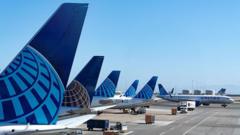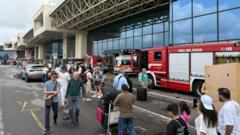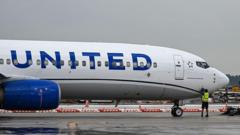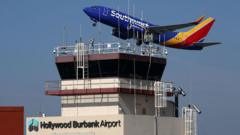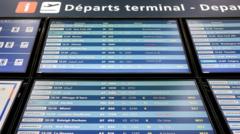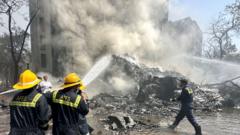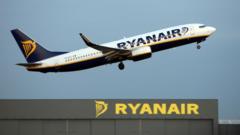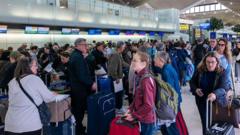A significant strike by French air traffic controllers has resulted in over 170 Ryanair flight cancellations, affecting the travel plans of more than 30,000 passengers. The disruption is part of a larger movement against working conditions cited by two French unions.
Ryanair Faces Major Disruptions with 30,000 Passengers Affected by French Air Traffic Strike
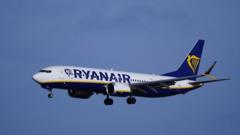
Ryanair Faces Major Disruptions with 30,000 Passengers Affected by French Air Traffic Strike
French air traffic control strikes lead to widespread Ryanair flight cancellations impacting holiday travelers across Europe.
Ryanair has confirmed that over 170 of its flights have been canceled due to a strike by French air traffic controllers, affecting more than 30,000 passengers planning to travel across Europe. This disruption is occurring during a critical time for summer travel, impacting not only flights to and from France but also those over French airspace to countries like the UK, Ireland, Spain, and Greece.
The strike, which is set to last for two days on Thursday and Friday, has led to significant cancellations at key airports, with Paris experiencing a cancellation rate of approximately 25%, while Nice's airport is facing a staggering 50% of its flights being scrapped. French Transport Minister Philippe Tabarot expressed strong disapproval of the unions' demands and the timing of the strike, which adds inconvenience for holiday-goers.
Ryanair's chief executive, Michael O'Leary, criticized the air traffic control disruptions, arguing that they unfairly hold European families hostage, and called for the European Commission to intervene. O’Leary specifically urged President Ursula von der Leyen to establish minimum services during strikes that would safeguard flights traversing through French airspace.
In light of the ongoing strike, France's civil aviation authority, DGAC, has instructed airlines to scale back their flight schedules at several airports, anticipating that disruptions will escalate on Friday with a projected 40% reduction in flights departing from Paris’s major airports.
The strike initiated by the UNSA-ICNA union stems from an array of grievances, including staff shortages, managerial problems, and contentious plans for a new clock-in system for air traffic controllers. Attempts to negotiate with the DGAC earlier this week did not yield resolution.
Airlines for Europe (A4E), the leading aviation representative in the region, characterized the strike as "intolerable," expressing concern over its impact on travel schedules at a peak holiday time. EasyJet, another low-cost airline grappling with the fallout, expressed its disappointment and called for a swift resolution to restore flight services.
Despite the challenges posed by the strike and ongoing disruptions from other geopolitical tensions, such as the recent conflict in the Middle East that resulted in more than 800 flight cancellations last month, Ryanair managed to maintain operational resilience, completing over 109,000 flights just in June, illustrating that less than 1% of its overall operations have been affected.

